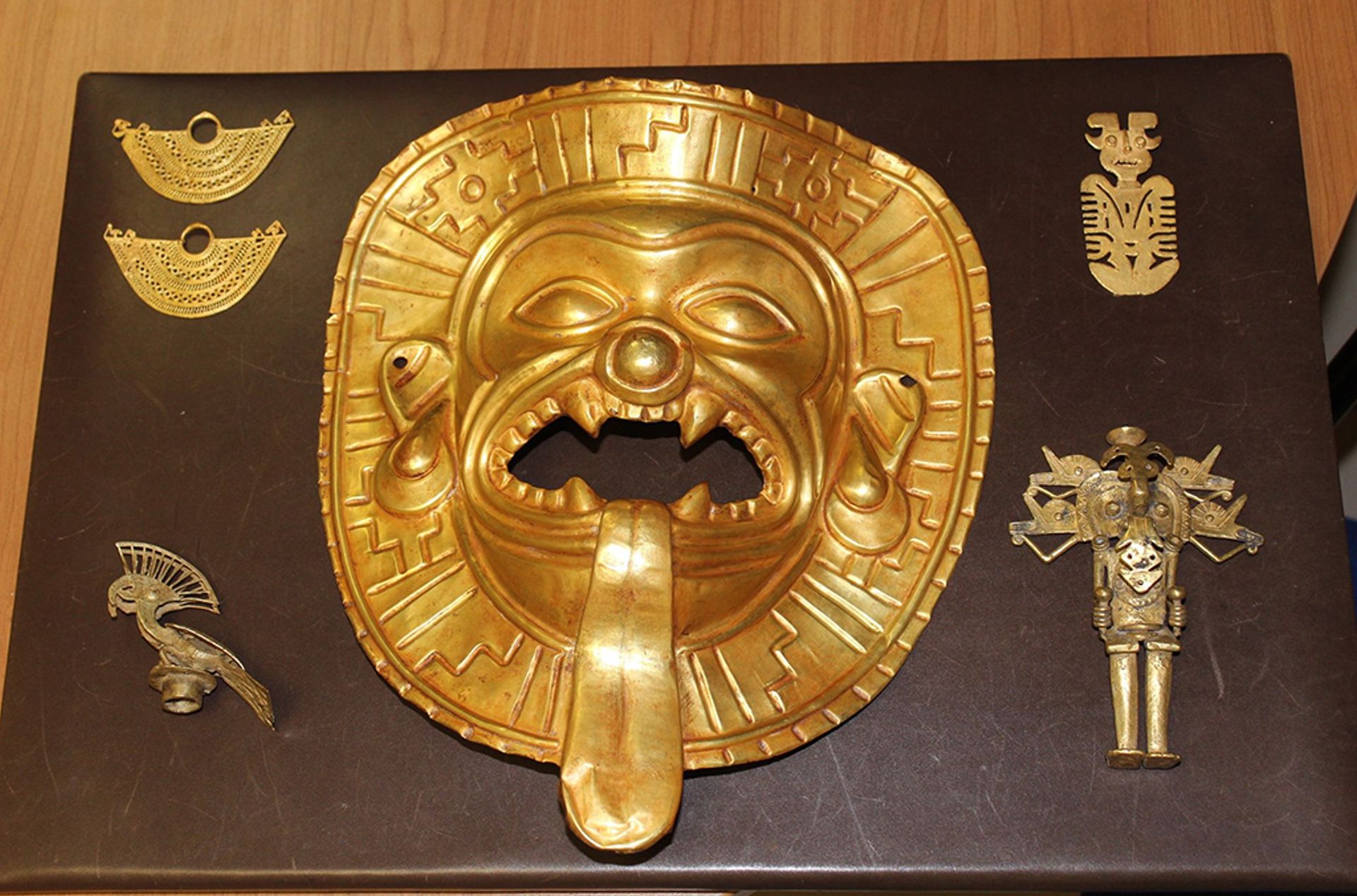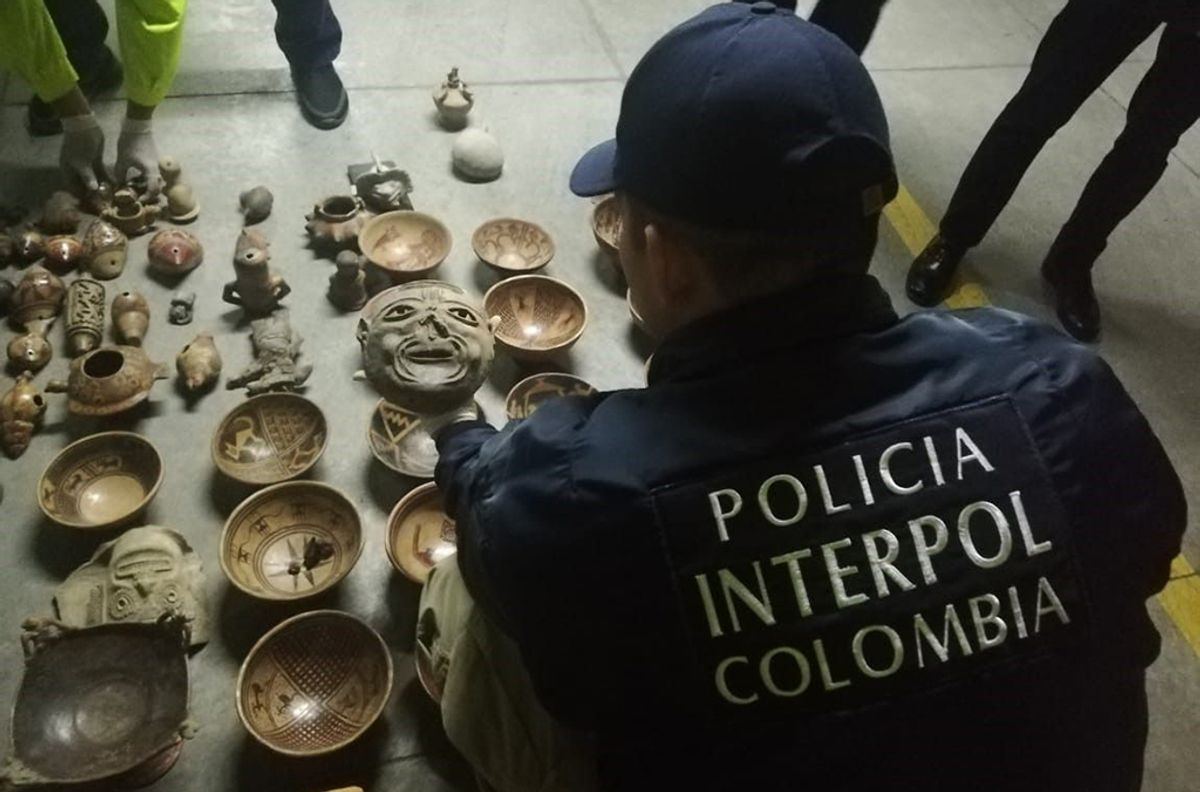Interpol reports that a coordinated crackdown in 103 countries targeting arts and antiquities traffickers has resulted in 101 arrests and the recovery of 19,000 artefacts and other works of art.
It says that 300 investigations have been opened as part of the effort, dubbed Operation Athena II, which was led by the World Customs Organization and Interpol last fall. The crackdown was coordinated with a parallel effort by the Spanish Civil Guard and Europol, it adds.
The criminal networks pursued by the agencies trafficked in archaeological finds, including objects unearthed in excavations, and works of art looted from war-ravaged countries as well as works stolen from museums, Interpol says.
“The number of arrests and objects show the scale and global reach of the illicit trade in cultural artefacts, where every country with a rich heritage is a potential target,” Interpol’s secretary general, Jürgen Stock, says in a statement. “If you then take the significant amounts of money involved and the secrecy of the transactions, this also presents opportunities for money laundering and fraud as well as financing organised crime networks.”
Law enforcement officers taking part in the crackdown closely scrutinised online sales sites, Interpol says, noting how crucial the internet has become to the illicit trade.
Among the highlights of the crackdown outlined by Interpol were:
- The seizure of 8,670 objects offered for sale online in a “cyber patrol week” led by the Italian carabinieri and aided by police and customs officials in addition to Europol, Interpol and the World Customs Organisation.
- The seizure of 971 objects at Kabul airport in Afghanistan when they were on the verge of being shipped to Istanbul.
- The recovery of extremely rare pre-Columbian objects illegally obtained in Colombia that were located at Barajas airport in Madrid, which accompanied the arrests of three traffickers in Spain. (Another 242 objects were seized in house searches in Bogotá, Colombia’s capital.)
- The seizure of 2,500 ancient coins by Argentina’s federal police and 1,375 by the state police in Latvia.
- The recovery of 108 metal detectors by a combination of six European police forces.
Other items recovered during the operations included paintings, fossils, ceramics and historical weapons.
Catherine de Bolle, Europol’s executive director, says in a statement: “Organized crime has many faces. The trafficking of cultural goods is one of them: it is not a glamorous business run by flamboyant gentlemen forgers, but by international criminal networks. You cannot look at it separately from combating trafficking in drugs and weapons: we know that the same groups are engaged, because it generate big money.
“Given that this is a global phenomenon affecting every country on the planet–either as a source, transit or destination–it is crucial that law enforcement all work together to combat it.”

Among the objects seized by the Spanish national police was a unique pre-Columbian Tumaco gold mask. Interpol


